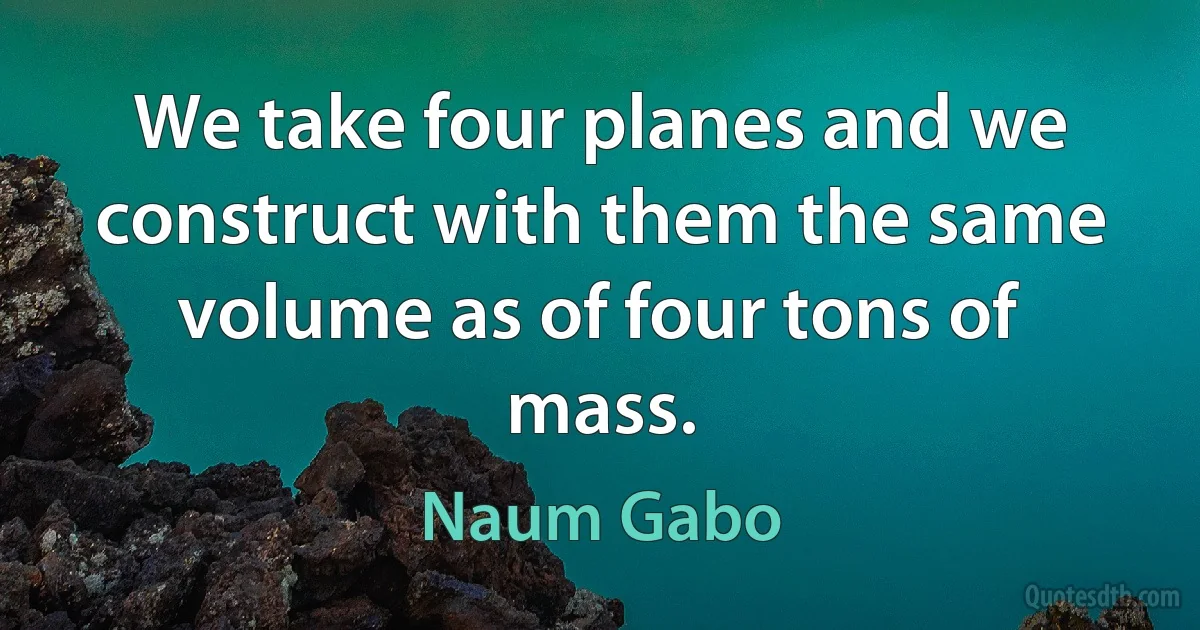Tons Quotes - page 3
A week after the attack, one is free to taste the bile of its atrocious ingenuity. It is already trite - but stringently necessary - to emphasise that such a mise en scène would have embarrassed a studio executive's storyboard or a thriller-writer's notebook ("What happened today was not credible," were the wooden words of Tom Clancy, the author of The Sum of All Fears). And yet in broad daylight and full consciousness that outline became established reality: a score or so of Stanley knives produced two million tons of rubble.

Martin Amis
The Opera House is a splendid edifice, and I wish to take nothing away from it, but my heart belongs to the Harbour Bridge. It's not as festive, but it is far more dominant – you can see it from every corner of the city, creeping into frame from the oddest angles, like an uncle who wants to get into every snapshot. From a distance it has a kind of gallant restraint, majestic but not assertive, but up close it is all might. It soars above you, so high that you could pass a ten-storey building beneath it, and looks like the heaviest thing on earth. Everything that is in it – the stone blocks in its four towers, the latticework of girders, the metal plates, the six-million rivets (with heads like halved apples) – is the biggest of its type you have ever seen. This is a bridge built by people who have had an Industrial Revolution, people with mountains of coal and ovens in which you could melt down a battleship. The arch alone weighs 30,000 tons. This is a great bridge.

Bill Bryson
Germany agreed to restrict her Navy to one third the size of the British but was accorded the right to build submarines, explicitly denied her by the peace treaty, up to 60 percent of British strength, and to 100 percent in case she decided it was necessary to her security, which she shortly did. Germany also pledged that her U-boats would never attack unarmed merchant ships, a word that she went back on from the very beginning of the second war. As soon as the deal with Britain was concluded Germany laid down two battleships, the Bismarck and Tirpitz, with a displacement of over 45,000 tons. By the terms of the Washington and London naval accords, Britain, France, Italy, Japan, and the United States had to limit their battleships to 35,000 tons. Great Britain, as the French contended, had no legal right to absolve Germany from respecting the naval clauses of the Versailles Treaty. And, as many Frenchmen added, no moral right either.

William L. Shirer
No need to repeat the blasphemous comments which everyone who had known Gran'pa Comstock made on that last sentence. But it is worth pointing out that the chunk of granite on which it was inscribed weighed close on five tons and was quite certainly put there with the intention, though not the conscious intention, of making sure that Gran'pa Comstock shouldn't get up from underneath it. If you want to know what a dead man's relatives really think of him, a good rough test is the weight of his tombstone.

George Orwell
So far as it goes, the distinction, between an atrocity and an act of war is valid. An atrocity means an act of terrorism which has no genuine military purpose. One must accept such distinctions if one accepts war at all, which in practice everyone does. Nevertheless, a world in which it is wrong to murder an individual and right to drop a thousand tons of high explosive on a residential area does sometimes make me wonder whether this planet of hours is not a loony-bin made use of by some other planet.

George Orwell
Muscle shoals. The production of nitrogen for plant food in peace and explosives in war is more and more important. It is one of the chief sustaining elements of life. It is estimated that soil exhaustion each year is represented by about 9,000,000 tons and replenishment by 5,450,000 tons. The deficit of 3,550,000 tons is reported to represent the impairment of 118,000,000 acres of farm lands each year.

Calvin Coolidge
People didn't fly the Atlantic any more if they could help it, except from bravado. Even if your plane wasn't sabotaged or hijacked, it was certain to be behind schedule.
Not that there was much to be said for ocean travel either, since the sinking of the Paolo Rizzi last summer and the drowning of thirteen hundred passengers in a sea made foul by a hundred and eighty thousand tons of oil from the tanker she'd collided with.
Moral, definitely: stay home.

John Brunner
The essence of air transport is speed, and speed is unfortunately one of the most expensive commodities in the world, principally because of the disproportionate amount of the power required to achieve high speed and to lift loads thousands of feet into the air. This is strikingly illustrated by the fact that while an average cargo ship, freight train and transport aeroplane are each equipped with engines totalling about 2,500 H.P., the ship can carry a load of about 7,000 tons, the train 800 tons and the plane only two and a half tons.

J. R. D. Tata
... we have a situation in which millions of vehicles, each a miracle of often unnecssary complication, are hurtling in all directions under the impulse of anything up to 200 horsepower. Many of them are the size of small houses and contain a couple of tons of sophisticated alloys - yet often carry a single passenger. They can travel at a hundred miles an hour, but are lucky if they average forty. In one lifetime they have consumed more irreplaceable fuel than has been used in the whole previous history of mankind. The roads to support them, inadequate though they are, cost as much as a small war; the analogy is a good one, for the casualties are on the same scale.

Arthur C. Clarke
There are tons of capable people in this country, and while I have been in this exploratory phase, yes, I have been considering who would I put in various roles, who do I consider to be some of the true patriots of this country that could help a Herman Cain cabinet if I were to run and to become president. And so yes, so far I have not come across or I don't have acquaintances with people who have professed the Muslim religion who are on a list of people I would consider. We are-we have become a nation of crises, Neil. And being politically correct is not something I'm going to spend a whole lot of time worrying about when we've got all of these other problems that we are facing right here in this country.

Herman Cain
Now, we put out a lot of carbon dioxide every year, over 26 billion tons. For each American, it's about 20 tons. For people in poor countries, it's less than one ton. It's an average of about five tons for everyone on the planet. And, somehow, we have to make changes that will bring that down to zero.

Bill Gates
There are tons of things in your home and life that you don't use, need, or even particularly want. They just came into your life as impulsive flotsam and jetsam and never found a good exit. Whether you're aware of it or not, this clutter creates indecision and distractions, consuming attention and making unfettered happiness a real chore. It is impossible to realize how distracting all the crap is - whether porcelain dolls, sports cars, or ragged T-shirts - until you get rid of it.

Timothy Ferriss
They were allowed a little touch at each of the books, but only with their fingertips tonight, literature cannot bear dirty hands; first we'll have to back each volume with paper, the covers must not get dirty, nor the spines slit, books are the nation's most precious possession, books have preserved the nation's life through monopoly, pestilence, and volcanic eruption, not to mention the tons of snow that have lain over the country's widely scattered homesteads for the major part of every one of its thousand years.

Halldór Laxness
After September 11th I had tons of interviews everywhere, except the United States of course, and often it was national radio and TV. A couple of times it turned out to be Irish television and BBC back to back, and the difference in reaction was startling. If I said this much on Irish TV, OK, discussion over, everyone understands what I'm talking about. You try to say it on BBC, you have to go on for like about an hour to explain to them what you mean. The Irish sea is a chasm, and it just depends who's been holding the whip for 800 years and who's been under it for 800 years.

Noam Chomsky



